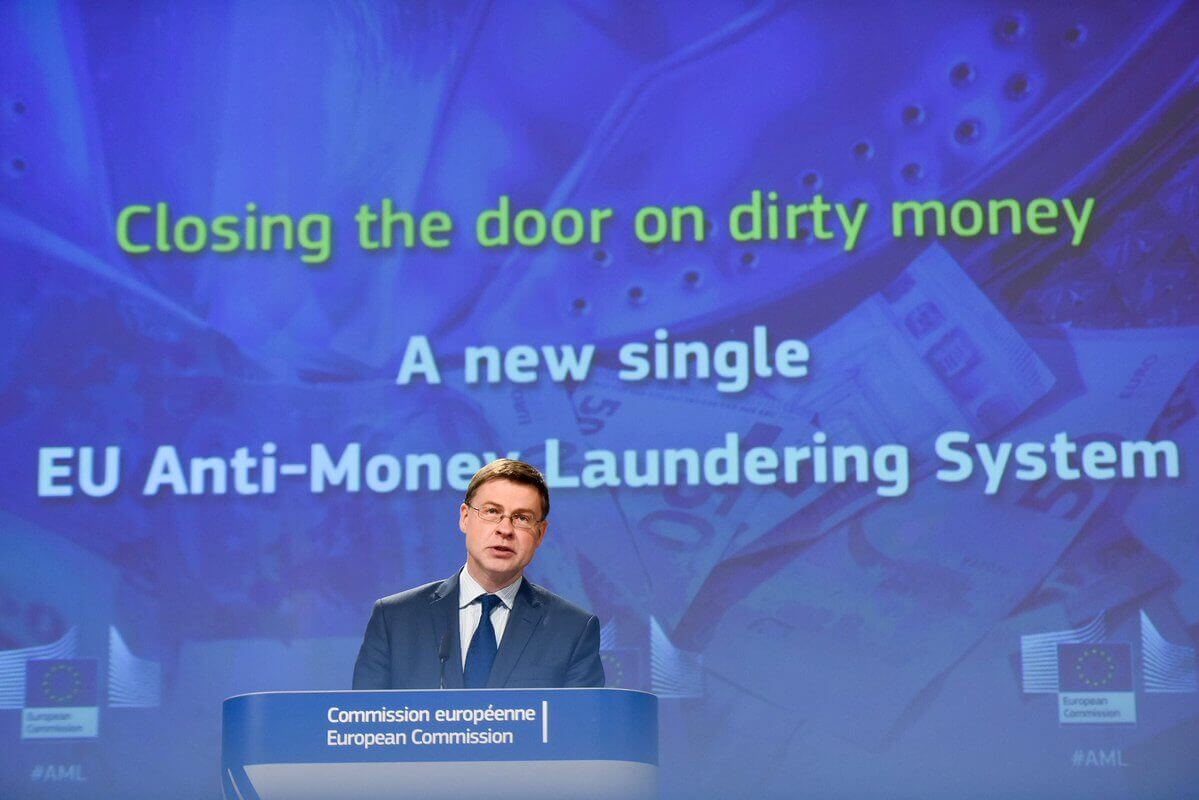The European Union (EU) has blacklisted four African countries over money-laundering concerns, saying that their financial transactions require further scrutiny. Botswana, Ghana, Mauritius, and Zimbabwe were four of 12 countries placed on the EU’s blacklist last week–the others being the Bahamas, Barbados, Jamaica, Nicaragua, Panama, Cambodia, Mongolia, and Myanmar. Uganda is already on the list.
The EU said the decision to add these countries came as a result of its Anti-Money Laundering Directive (AMLD), and that it is “aligned with the lists published by the Financial Action Task Force (FATF)”, a global money laundering and terrorist financing watchdog. The EU’s decision must be approved by the European Parliament in order for it to come into effect in October 2020.
In order for these countries to be de-listed, they must demonstrate a firm commitment towards eradicating money-laundering. Accordingly, while the abovementioned countries were added to the list, Bosnia-Herzegovina, Ethiopia, Guyana, Lao People’s Democratic Republic, Sri Lanka, and Tunisia were all removed from the list for adequately tackling the issue in their respective countries.
The European Commission’s Executive Vice President, Valdis Dombrovskis, said, “We need to put an end to dirty money infiltrating our financial system. Today we are further bolstering our defences to fight money laundering and terrorist financing, with a comprehensive and far-reaching Action Plan.” He added, “There should be no weak links in our rules and their implementation. We are committed to delivering on all these actions — swiftly and consistently — over the next 12 months. We are also strengthening the EU’s global role in terms of shaping international standards on fighting money laundering and terrorism financing.”
The EU runs this blacklist with the aim of protecting against “significant threats to the financial system of the Union” and the risk of terrorist financing. As a result of the blacklist, the newly added countries are barred from receiving new funding from the Union. While this does not make it illegal for European countries, businesses, and individuals to invest in these countries, it does require European banks to investigate clients with ties to these markets more thoroughly, which significantly raises the cost of–and thus disincentivizes–doing business in these regions.
The European Union, Australia, Canada, and New Zealand have imposed sanctions on Zimbabwe for roughly 20 years over human rights violations and electoral fraud. In addition, American sanctions on Zimbabwe, stretch as far back as the first presidential term of Barack Obama, who implemented the harsh measures as a punishment for political instability in the country. In March of this year, the US imposed sanctions on Zimbabwe’s State Security minister and its ambassador to Tanzania for their role in the killing and abduction of protestors. The US also renewed sanctions against Zimbabwe for human rights violations by security forces and not implementing adequate political reforms. Thus, the EU’s actions are sure to further debilitate the already embattled country.
The European Commission is looking into creating a new watchdog to monitor financial crimes and banks more stringently. The proposed common supervisory body would be empowered to impose sanctions and identify suspicious payments, and could be put in place by 2023.
European Union Blacklists Four African Countries Over Money-Laundering Concerns
The blacklist targets “significant” financial threats and the risk of terrorist financing.
May 11, 2020

IMAGE SOURCE: EUROPEAN UNION
